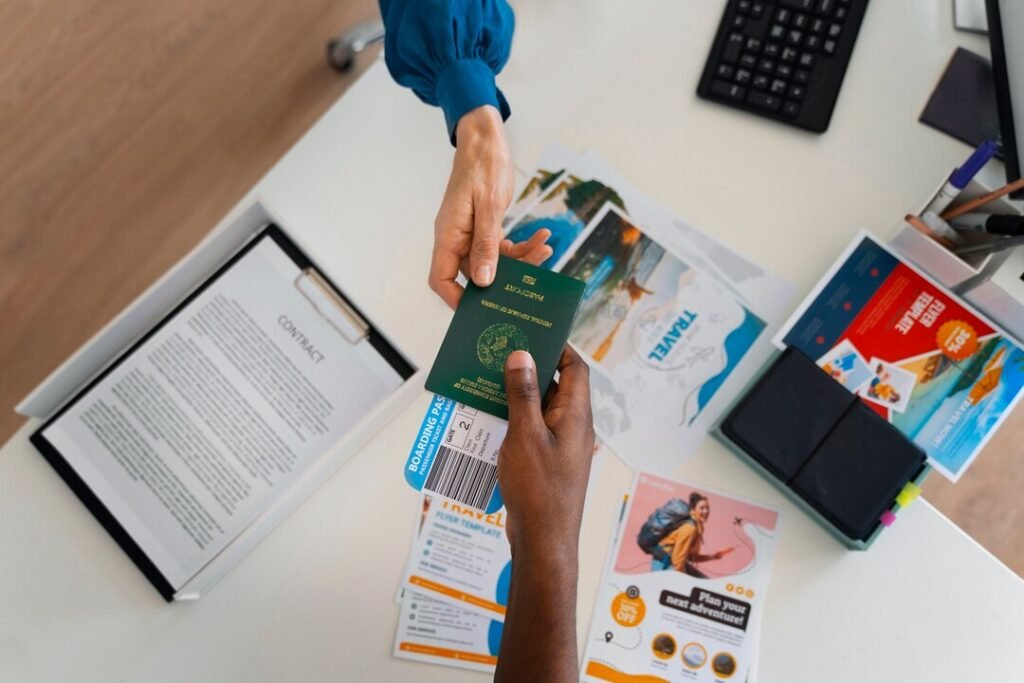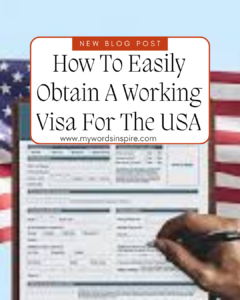
Are you dreaming of a new life abroad but concerned about the financial burden? Fully funded visa programs for permanent residency may be the answer you’re seeking. These coveted opportunities offer a pathway to citizenship in desirable countries without the hefty price tag typically associated with immigration.
In this comprehensive guide, you’ll discover a range of programs that cover not only visa fees but also relocation costs, language training, and even living expenses. Whether you’re a skilled professional, entrepreneur, or student, there’s likely a fully funded option tailored to your circumstances. Read on to explore how you can turn your expatriate aspirations into reality without breaking the bank.

Fully Funded Visa Programs for Permanent Residency
Securing permanent residency in a foreign country can be a life-changing opportunity, and fully funded visa programs offer a unique pathway to achieve this goal. These programs not only provide financial support but also pave the way for a new life abroad. Let’s explore some of the most prominent fully funded visa programs that can lead to permanent residency.
1. Skilled Migration Programs
Many countries offer skilled migration programs designed to attract talented professionals from around the world. These programs often provide financial assistance and a clear path to permanent residency for individuals with in-demand skills.
For instance, Australia’s Skilled Independent visa (subclass 189) allows eligible skilled workers to live and work permanently in Australia. While not directly funded, this program offers significant benefits, including access to healthcare and social security. Similarly, Canada’s Express Entry system for skilled workers provides a fast track to permanent residency for those who meet specific criteria.
2. Entrepreneur and Investor Visas
For those with an entrepreneurial spirit or significant financial resources, many countries offer visa programs that can lead to permanent residency through business investment.
The United States’ EB-5 Immigrant Investor Program, for example, provides a path to a green card for entrepreneurs who invest at least $1.8 million (or $900,000 in targeted employment areas) in a new commercial enterprise that creates at least 10 full-time jobs for U.S. workers. While this program requires a substantial initial investment, it can result in permanent residency for the investor and their immediate family members.
Similarly, the UK Innovator visa allows entrepreneurs with innovative, viable, and scalable business ideas to set up and run a business in the UK. After three years, visa holders may be eligible to apply for permanent residency, known as Indefinite Leave to Remain.
3. Academic and Research Scholarships
Many countries offer fully funded scholarship programs for international students and researchers, which can lead to permanent residency opportunities.
Germany’s DAAD scholarships, for instance, provide funding for international students to pursue various degree programs in Germany. While these scholarships don’t directly lead to permanent residency, they can open doors to employment opportunities that may eventually result in a permanent stay.
The Fulbright Foreign Student Program in the United States is another example of a fully funded academic program. While primarily focused on cultural exchange and education, Fulbright scholars often find pathways to long-term residency through subsequent employment or further academic pursuits.
4. Humanitarian and Refugee Programs
Several countries offer fully funded programs for individuals seeking asylum or fleeing conflict zones. These programs not only provide immediate relief but can also lead to permanent residency.
Canada’s Government-Assisted Refugees (GAR) Program, for example, provides support for Convention Refugees selected for resettlement. This program offers financial assistance and settlement services for up to one year after arrival, with a path to permanent residency and eventually citizenship.
Similarly, the United States Refugee Admissions Program (USRAP) provides resettlement opportunities for refugees, including financial assistance and a pathway to permanent residency after one year in the country.
5. Work-to-Residency Programs
Some countries offer work visa programs that can transition into permanent residency over time. While not initially “fully funded,” these programs often lead to well-paying jobs that can effectively cover the costs of relocation and settlement.
New Zealand’s Skilled Migrant Category Resident Visa is an excellent example. This points-based system allows skilled workers to live and work in New Zealand indefinitely. After holding this visa for two years, individuals can apply for permanent residency.
In conclusion, fully funded visa programs for permanent residency come in various forms, catering to different skills, backgrounds, and circumstances. Whether you’re a skilled professional, an entrepreneur, a student, or someone seeking humanitarian protection, there may be a program that fits your profile and aspirations. Remember to thoroughly research each option, as requirements and benefits can change over time, and consult with immigration experts to find the best path for your unique situation.
READ ALSO: Fully Funded Visa Options for Digital Nomads
FAQs
What are fully funded visa programs?
Fully funded visa programs are immigration initiatives that provide financial support to qualified individuals seeking permanent residency in a foreign country. These programs typically cover various expenses associated with the immigration process, such as application fees, travel costs, and initial settlement assistance. The primary goal is to attract skilled professionals, entrepreneurs, or individuals who can contribute significantly to the host country’s economy and society.
Who is eligible for fully funded visa programs?
Eligibility criteria for fully funded visa programs vary depending on the specific country and program. However, common requirements often include:
- Advanced educational qualifications (e.g., bachelor’s degree or higher)
- Relevant work experience in high-demand fields
- Proficiency in the host country’s official language(s)
- Clean criminal record
- Good health status
- Proof of funds to support initial settlement (in some cases)
It’s important to note that each program has its unique set of criteria, and applicants should carefully review the requirements before applying.
Which countries offer fully funded visa programs?
Several countries around the world offer fully funded visa programs for permanent residency. Some notable examples include:
- Canada: Express Entry system and Provincial Nominee Programs
- Australia: Skilled Independent Visa (subclass 189)
- New Zealand: Skilled Migrant Category Resident Visa
- Germany: Job Seeker Visa and EU Blue Card
- United Kingdom: Global Talent Visa and Innovator Visa
These countries often prioritize applicants with skills in high-demand sectors such as technology, healthcare, engineering, and scientific research.
What benefits do fully funded visa programs offer?
Fully funded visa programs provide numerous advantages to successful applicants:
- Financial support: Covering application fees, travel expenses, and initial settlement costs
- Expedited processing: Many programs offer faster processing times compared to standard immigration routes
- Path to citizenship: Most programs lead to permanent residency and eventual citizenship
- Family inclusion: Opportunities to bring immediate family members (spouse and dependent children)
- Access to social services: Healthcare, education, and other public services in the host country
- Career opportunities: Enhanced job prospects and professional growth in a new environment
How long does the application process typically take?
The duration of the application process for fully funded visa programs can vary significantly depending on the country, program, and individual circumstances. On average, the process may take anywhere from 6 months to 2 years. Factors that can influence processing times include:
- Volume of applications received
- Complexity of the applicant’s case
- Completeness and accuracy of submitted documents
- Background check procedures
- Quota systems or annual caps on visa issuance
It’s crucial for applicants to stay informed about processing times and maintain patience throughout the journey.
Are there any potential drawbacks or challenges to consider?
While fully funded visa programs offer numerous benefits, applicants should be aware of potential challenges:
- Competitive selection process: High demand often leads to fierce competition among applicants
- Adaptation to a new culture: Cultural differences and potential language barriers in the host country
- Career transitions: Possible difficulties in finding employment or transferring professional credentials
- Financial considerations: Initial costs before receiving program benefits and long-term financial planning
- Separation from family and friends: Emotional challenges of leaving behind support networks
Careful research and preparation can help mitigate these challenges and ensure a smoother transition to life in a new country.







